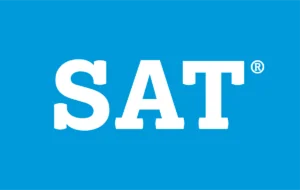
A comprehensive review commissioned by the Scottish government on school qualifications is due to be published, BBC mentioned. The review, anticipated to introduce ground-breaking ideas, is expected to revolutionize the educational landscape in Scotland.

✅ AI Essay Writer ✅ AI Detector ✅ Plagchecker ✅ Paraphraser
✅ Summarizer ✅ Citation Generator
Key Takeaways:
- The review, chaired by academic Louise Hayward, is exploring the effectiveness of the current examination system, possibly ending the practice of exams for some qualifications.
- Assessments may shift towards coursework and the recognition of extra-curricular activities, moving away from traditional examinations.
- The existing qualification system, including the relevance of National 4 qualifications, is under scrutiny, and any fundamental changes would need the approval of Scottish government ministers and parliament.
Radical Redefinition of Assessments
The upcoming review is expected to recommend a significant shift in how Scottish students are evaluated. Following the abolition of Standard Grades a decade ago, concerns have emerged that the current examination system may no longer be adequate. The interim report, published in March, declared the system “no longer fit for purpose”. As a result, the impending review might suggest the discontinuation of exams for fourth-year students and some qualifications.
Coursework and Extra-curricular Recognition
Instead of traditional exams, students could be evaluated through coursework and assessments that acknowledge their involvement in extra-curricular activities. This proposed change reflects the notion that conventional exams may not comprehensively evaluate a student’s abilities and skills. This revised approach could result in a more holistic view of student achievements and might better prepare them for future career challenges.
The Future of National 4 and National 5 Examinations
National 4 and 5 qualifications, typically pursued by 15 and 16-year-olds and introduced in 2013/14, are also under review. The review aims to address the necessity of these exams, with some arguing that National 5 qualifications could also be achieved through continuous coursework and assessments.
Government Deliberations and Stakeholder Consultation
Any drastic changes to the qualification system would be subject to the Scottish government ministers and parliament’s approval. Before contemplating any sweeping changes, the views of parents, employers, and education professionals will likely be sought.
Education Secretary Jenny Gilruth has indicated the need to “future-proof our qualifications” and hinted that they may look “radically different” in the future. It is essential, she said, that students are assessed continuously throughout the academic year, reflecting the potential shift towards ongoing assessment as opposed to final exams.
Overhauling the Exam Agencies
The Scottish Qualifications Authority (SQA), Education Scotland, and a separate school inspection agency are all set to be replaced by the summer of 2024, following another report that concluded too much focus was placed on exams in schools.
Currently, students across Scotland await the results of this year’s written exams, the last of three years of modified assessments necessitated by the disruption caused by Covid. The SQA assured that grading would be “sensitive” this year due to the ongoing impact of the pandemic. However, it aims to revert exams back to normal next year.
Overall, the changes may significantly transform the educational landscape of Scotland, focusing more on a student’s holistic development and continual assessment rather than traditional examinations. However, the final decision rests with the Scottish government after considering various stakeholders’ views.
Why Exams Are Not the Best Measure of Student Learning
The ongoing debate about the relevance of traditional exams in evaluating student learning brings to the forefront some significant issues. Critics argue that conventional examinations may not be the best measure of a student’s full academic potential, for several reasons:
- Limited Scope: Exams typically assess a narrow range of skills and knowledge, often ignoring critical skills like creativity, problem-solving, communication, and teamwork.
- Stress Factor: The high-pressure environment of exams can induce stress, potentially affecting a student’s performance and masking their true abilities.
- Memorization vs Understanding: Exams often prioritize rote learning and memorization over deeper comprehension and critical thinking. Students may pass the test without fully understanding the subject matter.
- One-size-fits-all Approach: Traditional exams lack personalization. They do not account for individual learning styles and paces, potentially disadvantaging those who may need more time or alternative forms of assessment.
- Exclusion of Practical Skills: Exams primarily focus on theoretical knowledge, sidelining the application of knowledge in real-world contexts. Practical skills, which are often vital in future careers, can be overlooked.
By reassessing the examination-centric approach, educational systems may be better positioned to nurture well-rounded, lifelong learners. The Scottish government’s potential shift towards continuous coursework and recognition of extra-curricular activities appears to be a move in this direction.
Related articles:
The Importance of Mental Health in College: From Student’s Perspective
GRE Trims Standardized Test Duration, Simplifying Business School Admissions
Texas High School Postpones Graduation as Majority of Seniors Fall Short of Diploma Requirements
Follow us on Reddit for more insights and updates.





Comments (0)
Welcome to A*Help comments!
We’re all about debate and discussion at A*Help.
We value the diverse opinions of users, so you may find points of view that you don’t agree with. And that’s cool. However, there are certain things we’re not OK with: attempts to manipulate our data in any way, for example, or the posting of discriminative, offensive, hateful, or disparaging material.